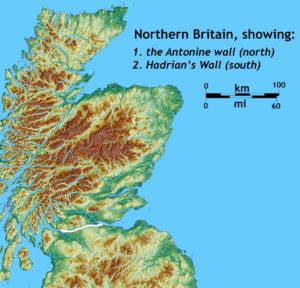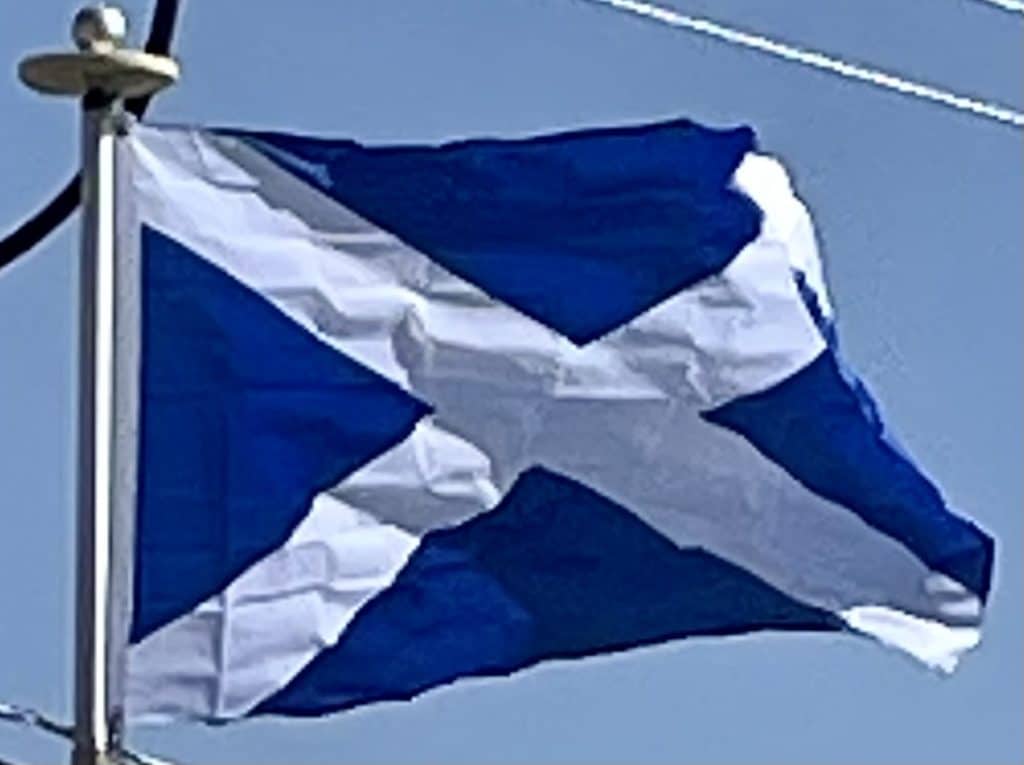

Scotland
The mainland of Scotland comprises the northern third of the land mass of the island of Great Britain, which lies off the north-west coast of Continental Europe. The total area is 78,772 km2 (30,414 sq mi), comparable to the size of the Czech Republic. Scotland’s only land border is with England, and runs for 96 kilometres (60 mi) between the basin of the River Tweed on the east coast and the Solway Firth in the west. The Atlantic Ocean borders the west coast and the North Sea is to the east. The island of Ireland lies only 21 kilometers (13 mi) from the south-western peninsula of Kintyre; Norway is 305 kilometers (190 mi) to the east and the Faroe Islands, 270 kilometers (168 mi) to the north.
The territorial extent of Scotland is generally that established by the 1237 Treaty of York between Scotland and the Kingdom of England and the 1266 Treaty of Perth between Scotland and Norway. Important exceptions include the Isle of Man, which having been lost to England in the 14th century is now a crown dependency outside of the United Kingdom; the island groups Orkney and Shetland, which were acquired from Norway in 1472; and Berwick-upon-Tweed, lost to England in 1482
The geographical center of Scotland lies a few miles from the village of Newtonmore in Badenoch. Rising to 1,344 meters (4,409 ft) above sea level, Scotland’s highest point is the summit of Ben Nevis, in Lochaber, while Scotland’s longest river, the River Tay, flows for a distance of 190 kilometers (118 mi).
Economy:

Scotland’s gross domestic product (GDP), including oil and gas produced in Scottish waters, was estimated at £150 billion for the calendar year 2012. In 2014, Scotland’s per capita GDP was one of the highest in the EU. As of April 2019 the Scottish unemployment rate was 3.3%, below the UK’s overall rate of 3.8%, and the Scottish employment rate was 75.9%.
Edinburgh is the financial services center of Scotland, with many large finance firms based there, including: Lloyds Banking Group (owners of HBOS); the Government-owned Royal Bank of Scotland and Standard Life. Edinburgh was ranked 15th in the list of world financial centers in 2007, but fell to 37th in 2012, following damage to its reputation, and in 2016 was ranked 56th out of 86. Its status had returned to 17th however by 2020.
Whisky is one of Scotland’s more known goods of economic activity. Exports increased by 87% in the decade to 2012 and were valued at £4.3 billion in 2013, which was 85% of Scotland’s food and drink exports. It supports around 10,000 jobs directly and 25,000 indirectly. It may contribute £400–682 million to Scotland, rather than several billion pounds, as more than 80% of whisky produced is owned by non-Scottish companies. A briefing published in 2002 by the Scottish Parliament Information Centre (SPICe) for the Scottish Parliament’s Enterprise and Life Long Learning Committee stated that tourism accounted for up to 5% of GDP and 7.5% of employment.